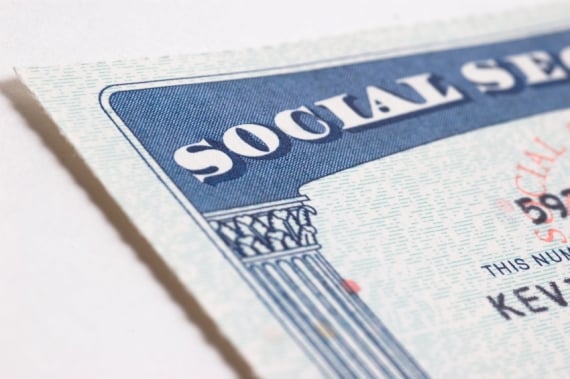The Social Security Administration on Tuesday announced that the cost-of-living-adjustment for 2013 will be a measly 1.7%. And as Mary Beth Franklin points out, that small increase could be gutted by hikes in Medicare premiums.
Monthly Social Security benefits for more than 56 million retirees will increase 1.7% in 2013, less than half the 3.6% increase that they received this year. Retirees received no cost-of-living adjustment in either 2010 or 2011.
Despite the increase scheduled for next year, most Social Security recipients may not receive bigger benefit checks as the increase could be mostly offset by higher Medicare Part B premiums, which typically are deducted from Social Security benefits.
For the average retiree, Social Security benefits will increase $21 per month from $1,240 this year to $1,261 in 2013, the Social Security Administration said Tuesday. For married couples, the average benefit increase will be $38 per month from $2,014 this year to $2,048 next year. The maximum benefit for a worker retiring at age 66 next year will increase $20 per month from $2,513 to $2,533 per month.
Older workers who collect retirement benefits before their normal retirement age in 2013 will be able to earn slightly more before being affected by the earnings cap, which reduces benefits by $1 for every $2 earned over the cap. The earnings cap will increase to $15,120 per year in 2013, up from $14,640 in 2012. A more generous threshold applies in the year an individual reaches full retirement age. In 2013, that earnings cap will increase to $40,080 per year ($3,340 per month), up from $38,880 per year in 2012 ($3,240 per month) for workers who collect Social Security benefits during the year they turn 66.
In addition to benefit increases, the maximum amount of earnings of all workers subject to the Social Security payroll tax will increase from $110,100 today to $113,700 on January 1, 2013. Of the estimated 163 million workers who will pay Social Security taxes in 2013, nearly 10 million will pay higher taxes as a result of the increase in the taxable maximum, the Social Security Administration said.
Without congressional action, workers will resume paying 6.2% of their wages to fund Social Security, after the current two percentage point payroll reduction expires at the end of the year. The 6.2% will apply to the first $113,700 of wages in 2013. All wages, including amounts over that cap, are subject to a 1.45% tax to fund Medicare.
Part B premium costs for 2013 will be announced in the near future, but estimates by the 2012 Medicare Trustees Report show an increase is on the horizon. Information about Medicare changes for 2013, when announced, will be available at www.Medicare.gov.
While the majority of Medicare beneficiaries are protected by the hold-harmless provision, which prevents a beneficiary's Social Security check from declining, any offset of the COLA reduces the overall purchasing power of the Social Security benefit. The hold-harmless provision does not apply to higher-income individuals and new enrollees, who can expect premiums to consume a larger share of their Social Security checks.
“This reflects the growing trend of health-related expenses eating into retirement income,” said Cathy Weatherford, president and CEO of the Insured Retirement Institute, a non-profit organization representing the annuities industry. “Now more than ever, consumers need to be aware of how quickly health-related expenditures can decimate retirement savings and develop a plan with a financial adviser that includes a strategy to cover basic living expenses as well as medical expenditures.”
According to IRI research, 42 percent of Baby Boomers expect Social Security to be a major source of retirement income. The same study also found that only 37 percent of Baby Boomers are confident that they will have enough money to take care of their medical expenses during retirement.







